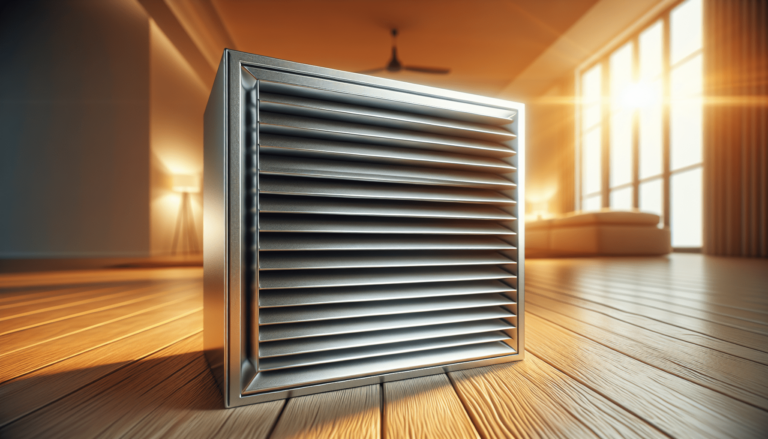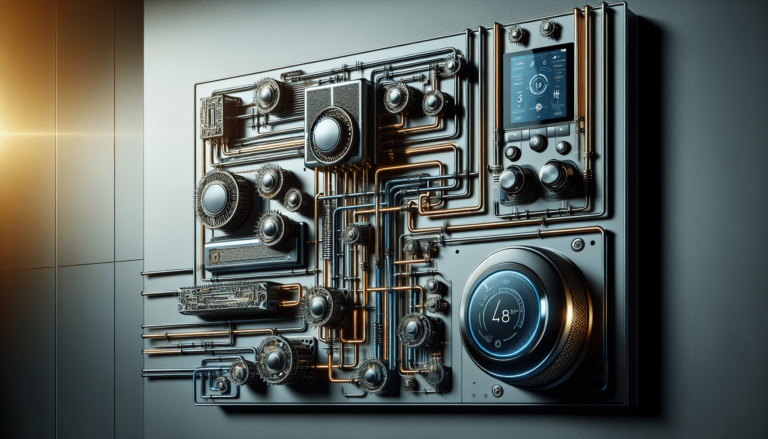

HVAC Services
Get Professional Repairs From The Area's Trusted HVAC Technicians. Ask About Our Services! We Offer Professional Heating & Cooling System Repairs And Guarantee Long-Lasting Results.
Got Question? Call us: (850) 678-2665Financing
Improving Indoor Air Quality with HVAC Services
Improving indoor air quality is crucial for a healthier and more comfortable home. Discover how HVAC services can help you achieve this. Contact Tempacure HVAC at (850) 678-2665 or visit their website to learn more.
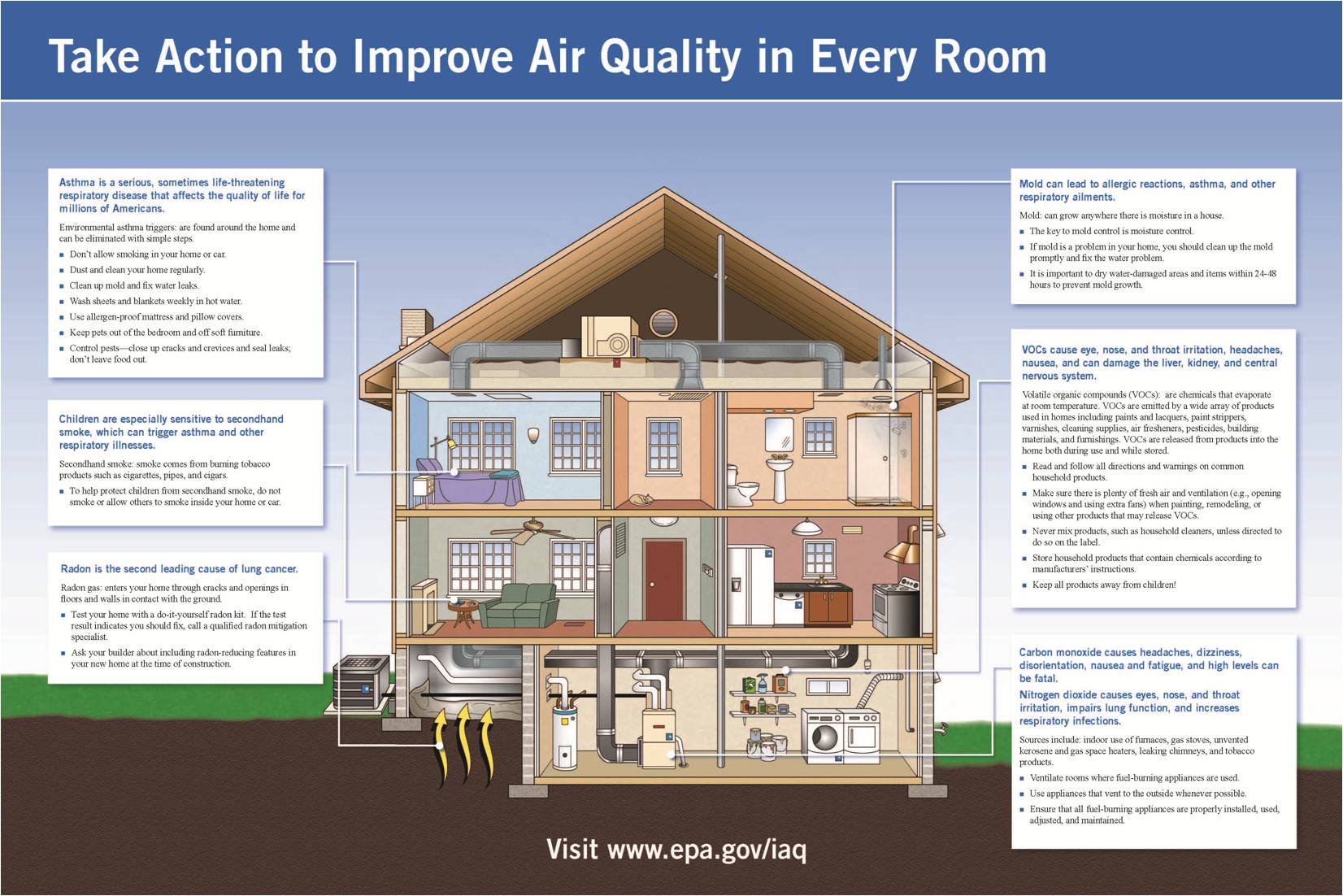
If you’re looking to create a healthier and more comfortable environment in your home, improving indoor air quality should be at the top of your list. One effective way to achieve this is through the use of HVAC services. Whether it’s repairs, maintenance, or installation, Tempacure Heating and Air Conditioning is the go-to option for HVAC services in Niceville FL and the surrounding area. With their expertise and top-notch customer service, they are the leaders in all things HVAC. Say goodbye to stuffy air and hello to a breath of fresh air with Tempacure HVAC. Give them a call at (850) 678-2665 or visit their website at https://tempacurehvac.com to learn more about improving your indoor air quality.
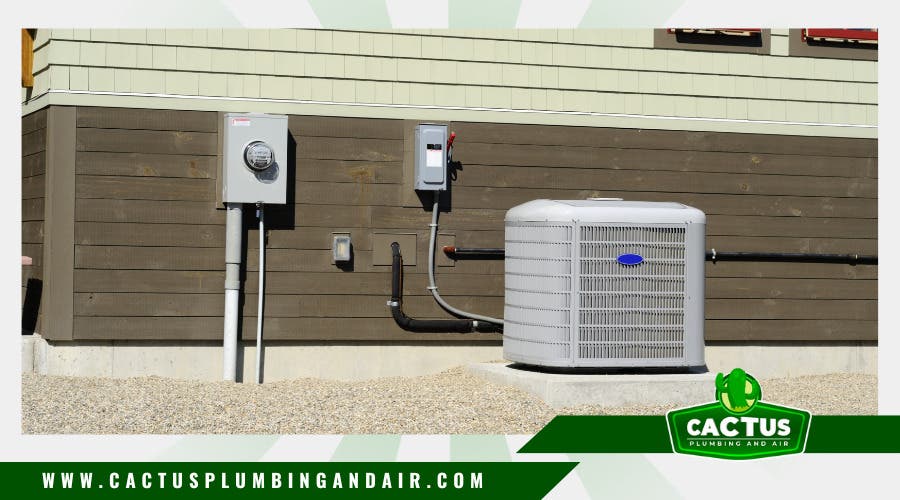
This image is property of patch.com.
The Importance of Indoor Air Quality
Indoor air quality plays a significant role in our overall health and well-being. We spend a considerable amount of time indoors, whether it’s at home, the office, or other public spaces. Ensuring that the air we breathe is clean and free from pollutants is crucial for maintaining good health. In this article, we will explore the importance of indoor air quality and how HVAC systems can help improve it.
Understanding Indoor Air Quality
Indoor air quality refers to the purity of the air inside a building or enclosed space. It encompasses various factors such as the presence of pollutants, humidity levels, ventilation, and temperature. Poor indoor air quality can have detrimental effects on our health, leading to respiratory issues, allergies, fatigue, and even more severe conditions in some cases.
The Impact of Poor Indoor Air Quality on Health
Breathing in pollutants and allergens present in indoor air can have significant implications for our health. Volatile Organic Compounds (VOCs), dust, mold, smoke, and odors are among the common pollutants that can cause respiratory problems, trigger allergies, and worsen existing conditions such as asthma. Long-term exposure to poor indoor air quality can even contribute to more serious issues like heart disease and respiratory infections.
The Role of HVAC Systems in Improving Air Quality
HVAC systems, which include heating, ventilation, and air conditioning, play a crucial role in enhancing indoor air quality. These systems not only regulate the temperature but also filter the air and ensure proper ventilation. By removing pollutants, controlling humidity levels, and providing adequate fresh air supply, HVAC systems help create a healthier and more comfortable living or working environment.
Common Indoor Air Pollutants
To address indoor air quality effectively, it is essential to understand the common pollutants that can be present in our homes or workplaces. Let’s explore some of the most common indoor air pollutants:
Volatile Organic Compounds (VOCs)
VOCs are chemicals that can be emitted by various sources such as cleaning products, paints, furniture, and even certain building materials. These compounds can cause a range of health issues, including eye, nose, and throat irritation, headaches, and even damage to the liver, kidney, or central nervous system. HVAC systems equipped with air filters can help reduce the presence of VOCs in the indoor air.
Dust and Allergens
Dust mites, pet dander, pollen, and other allergens are notorious for causing allergies and respiratory problems. When these particles circulate in the air, they can easily be inhaled, leading to discomfort and adverse health effects. HVAC systems with proper air filtration can help capture and remove these particles, significantly improving indoor air quality.
Mold and Mildew
Mold and mildew thrive in damp and poorly ventilated areas, such as bathrooms, basements, or areas affected by water damage. Exposure to mold spores can trigger allergies, respiratory issues, and even infections. HVAC systems can help control humidity levels, preventing the growth and spread of mold by ensuring proper ventilation and removing excess moisture from the air.
Smoke and Odors
Smoke from cigarettes, cooking, or fireplaces, as well as unpleasant odors, can greatly affect indoor air quality. They can cause respiratory irritation and discomfort, and the lingering odors can be quite unpleasant. HVAC systems with specialized filters and exhaust features can effectively remove smoke particles and eliminate unpleasant odors, improving the overall air quality.
Air Filtration Systems
One of the key components of HVAC systems that contribute to improving indoor air quality is air filtration. Let’s explore the different aspects of air filtration systems:
Types of Air Filters
Air filters come in various types, ranging from basic to advanced. The most common types include fiberglass filters, pleated filters, electrostatic filters, and HEPA (High-Efficiency Particulate Air) filters. HEPA filters are highly effective in capturing even the smallest particles, making them an excellent choice for individuals with allergies or respiratory conditions.
MERV Ratings and Their Significance
MERV (Minimum Efficiency Reporting Value) ratings indicate the effectiveness of an air filter in removing particles of different sizes from the air. The higher the MERV rating, the more efficient the filter is at capturing smaller particles. It is important to choose an air filter with an appropriate MERV rating that suits your specific needs and the level of air quality improvement required.
The Role of Air Filters in Removing Pollutants
Air filters play a crucial role in removing airborne pollutants, such as dust, pollen, pet dander, and other microscopic particles. They trap these particles within the filter, preventing them from circulating back into the air. By regularly replacing or cleaning air filters, you can ensure their optimal performance in removing pollutants and maintaining good indoor air quality.
Regular Maintenance and Filter Replacement
To maintain the effectiveness of air filtration systems, regular maintenance and filter replacement are necessary. Over time, air filters can become clogged with trapped particles, making them less efficient. Regular maintenance, which includes cleaning or replacing filters as recommended by the manufacturer, ensures that your HVAC system continues to improve indoor air quality effectively.
Proper Ventilation
Proper ventilation is essential for maintaining good indoor air quality. Let’s explore why it is important and the different ventilation systems available:
The Importance of Ventilation in Indoor Spaces
Ventilation is crucial for supplying fresh air, eliminating pollutants, and controlling moisture levels in enclosed spaces. Stagnant air can promote the accumulation of pollutants, higher humidity, and unpleasant odors. By ensuring adequate ventilation, we can reduce the concentration of airborne pollutants and create a healthier and more comfortable indoor environment.
Types of Ventilation Systems
There are different types of ventilation systems, including natural ventilation, mechanical ventilation, and a combination of both. Natural ventilation relies on openings such as windows and vents to allow the entry of fresh air and the removal of stale air. Mechanical ventilation, on the other hand, utilizes fans and ductwork to control the airflow and extract pollutants. A combination of both systems can provide optimal ventilation for a specific space.
Ensuring Adequate Fresh Air Supply
Ventilation systems should be designed to ensure an adequate supply of fresh air to meet the occupants’ needs. This can be achieved by properly sizing the ventilation system and strategically locating vents or air intakes. By bringing in fresh outdoor air, ventilation systems can dilute pollutants and maintain optimal indoor air quality.
Balancing Energy Efficiency and Ventilation
While ventilation is crucial for good indoor air quality, it is also important to consider energy efficiency. Properly designed ventilation systems should provide adequate fresh air while minimizing energy loss. This can be achieved through the use of energy recovery ventilators (ERVs) or heat recovery ventilators (HRVs), which recover heat or coolness from the exhaust air to pre-condition the incoming fresh air, reducing energy consumption.
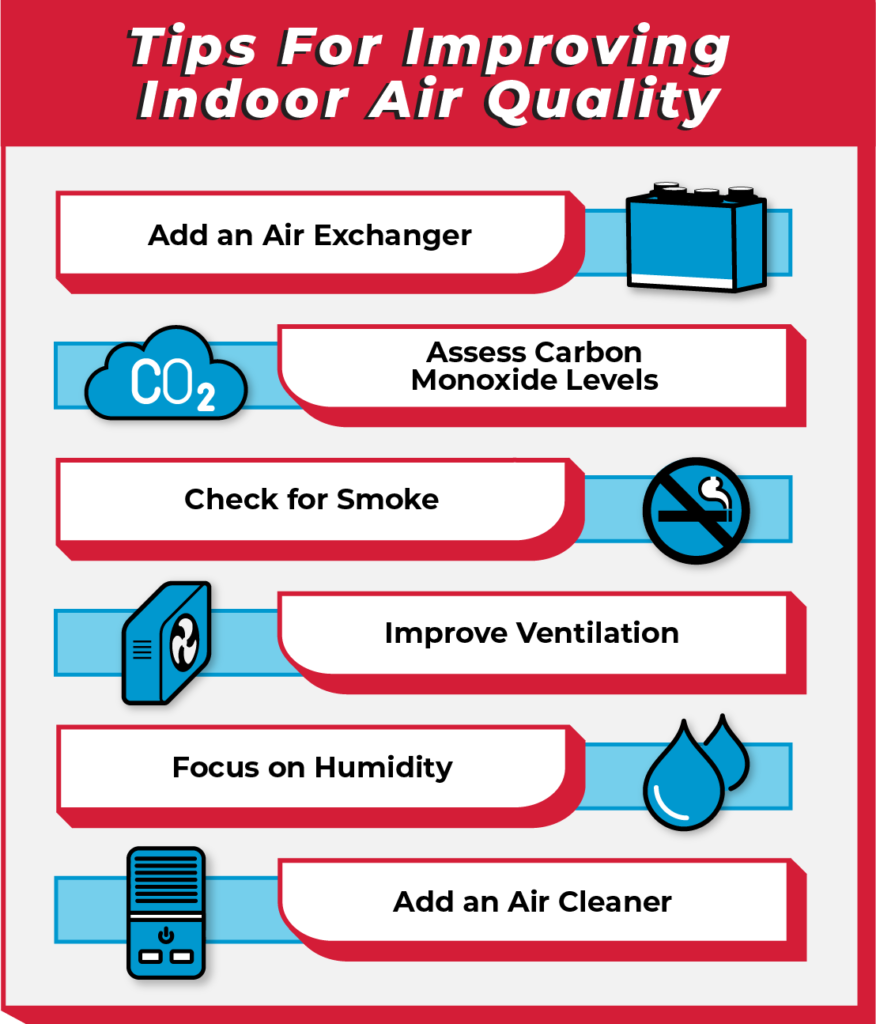
This image is property of www.genzryan.com.
Humidity Control
Humidity levels play a significant role in indoor air quality. Let’s explore the impact of humidity, how to choose the right levels, and the role of HVAC systems in humidity control:
The Impact of Humidity on Indoor Air Quality
Excess humidity can create an ideal environment for the growth of mold, mildew, and dust mites. It can also cause discomfort and contribute to respiratory issues. On the other hand, low humidity levels can lead to dry skin, irritated eyes, and respiratory problems. Maintaining optimal humidity levels is crucial for improving indoor air quality and ensuring a comfortable living or working environment.
Choosing the Right Humidity Levels
The ideal humidity levels for indoor spaces typically range between 30% and 50%. This range helps prevent mold growth while maintaining comfortable conditions. However, the required humidity levels may vary depending on factors such as climate, personal preferences, and specific needs. HVAC systems equipped with humidity control features allow you to adjust and maintain the desired humidity levels for optimal air quality.
The Role of HVAC Systems in Humidity Control
HVAC systems play a key role in humidity control. They can remove excess moisture from the air using dehumidifiers or add moisture using humidifiers. HVAC systems with built-in humidity control features ensure that the humidity levels remain within the desired range, helping to prevent the growth of mold and mildew while maintaining a comfortable indoor environment.
Humidifiers and Dehumidifiers for Optimal Air Quality
Humidifiers and dehumidifiers are standalone devices or integrated components of HVAC systems that help regulate humidity levels. Humidifiers add moisture to the air in dry conditions, improving respiratory comfort and preventing dryness-related health issues. Dehumidifiers, on the other hand, remove excess moisture, reducing the likelihood of mold growth and other humidity-related problems.
Duct Cleaning and Sealing
Duct cleaning and sealing are essential tasks that contribute to maintaining good indoor air quality. Let’s explore the importance of duct cleaning, the benefits of professional services, and the role of sealing ductwork:
Understanding the Need for Duct Cleaning
Over time, dust, debris, and other pollutants can accumulate in the ductwork of HVAC systems. When these contaminants circulate through the air ducts, they can be released into the indoor air, affecting its quality. Regular duct cleaning helps remove these contaminants, ensuring that the air circulating through the HVAC system is clean and pollutant-free.
Benefits of Professional Duct Cleaning
Professional duct cleaning services offer numerous benefits in terms of improving indoor air quality. Trained technicians can thoroughly clean the entire ductwork, removing built-up dust, debris, and pollutants. This not only improves air quality but also helps to maintain the efficiency and longevity of the HVAC system. Professional duct cleaning services use specialized equipment and techniques to ensure a thorough and effective cleaning process.
Preventing Air Leaks and Improving Efficiency
In addition to cleaning, proper sealing of the ductwork is crucial for ensuring optimal indoor air quality. Leaky ducts can allow pollutants, dust, and even pests to enter the system, compromising air quality. Moreover, air leaks can result in energy loss, reducing the efficiency of the HVAC system. Sealing ductwork prevents these issues, improves overall air quality, and enhances energy efficiency.
Sealing Ductwork for Enhanced Air Quality
Professional HVAC service providers can inspect and seal ductwork using sealants and insulation materials. By sealing any gaps, cracks, or leaks, they can prevent the entry of pollutants and ensure that the air flowing through the HVAC system remains clean and pure. Sealed ductwork helps maintain good indoor air quality and contributes to the effectiveness of air filtration and ventilation systems.
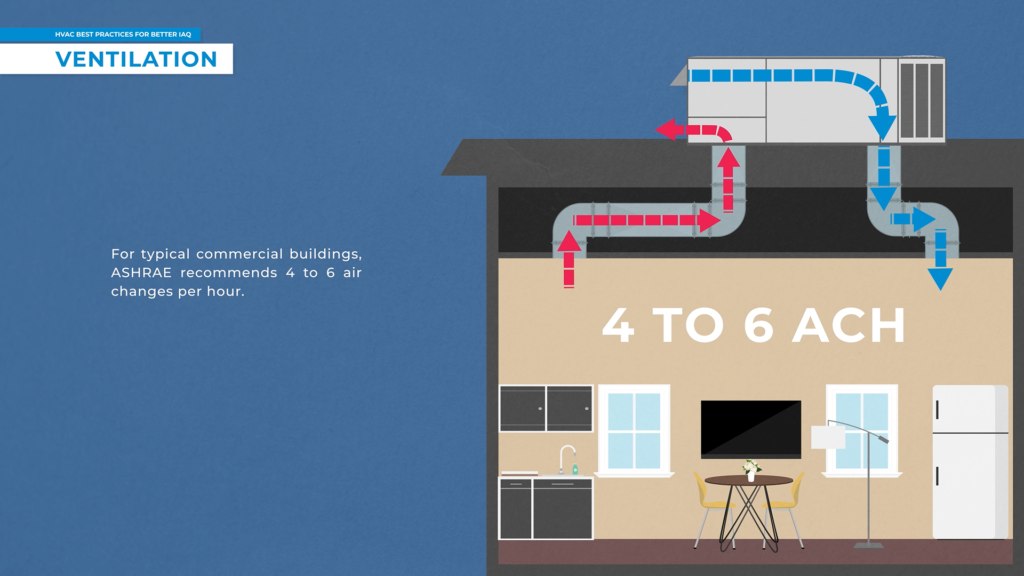
This image is property of colonialwebb.com.
UV Air Purifiers
UV air purifiers are advanced devices that utilize ultraviolet light to eliminate harmful contaminants in the air. Let’s explore how they work, the benefits they offer, and their integration with HVAC systems:
How UV Air Purifiers Work
UV air purifiers use ultraviolet light to kill or neutralize microorganisms such as bacteria, viruses, and mold spores. The UV light damages the DNA or RNA of these organisms, rendering them incapable of reproducing or causing harm. As air passes through the system, it is exposed to the UV light, effectively eliminating these harmful contaminants.
Benefits of UV Air Purification
UV air purifiers offer several benefits in terms of improving indoor air quality. They provide an additional layer of protection against bacteria, viruses, and mold, reducing the risk of infections and respiratory issues. UV air purifiers also help control odors by neutralizing volatile organic compounds (VOCs). By incorporating UV air purifiers into HVAC systems, you can enhance the overall air quality in your home or workplace.
Targeting Bacteria, Viruses, and Mold Spores
The use of UV air purifiers specifically targets and eliminates bacteria, viruses, and mold spores that may be present in the indoor air. These microorganisms can cause infections, allergies, and respiratory problems. By installing UV air purifiers, you can significantly reduce the concentration of these harmful contaminants, ensuring a healthier environment for you and your family or colleagues.
Integration with HVAC Systems
UV air purifiers can be integrated with HVAC systems, allowing for comprehensive air purification throughout the entire space. These purifiers can be installed near the air handler or within the ductwork, ensuring that all the air passing through the system is effectively treated. Integrating UV air purifiers with HVAC systems provides continuous and efficient air purification, leading to improved indoor air quality.
Carbon Monoxide Detection
Carbon monoxide (CO) is a colorless, odorless gas that is highly toxic and can be deadly if inhaled in high concentrations. Let’s explore the dangers of carbon monoxide, the importance of detectors, and their integration with HVAC systems:
Understanding the Dangers of Carbon Monoxide
Carbon monoxide is produced by the incomplete combustion of fuels such as gas, oil, or coal. It can be released from various sources, including furnaces, boilers, fireplaces, and portable generators. Breathing in carbon monoxide can lead to severe health issues, ranging from headaches and dizziness to unconsciousness and death. Detecting carbon monoxide is essential for protecting yourself and your loved ones from this silent killer.
The Importance of Carbon Monoxide Detectors
Carbon monoxide detectors are crucial for early detection of this dangerous gas. They alert occupants to the presence of carbon monoxide, allowing them to evacuate the premises and seek fresh air immediately. Carbon monoxide detectors should be installed in every sleeping area and on every level of the building, following the manufacturer’s guidelines. They provide peace of mind and are vital for ensuring the safety of everyone indoors.
Integration with HVAC Systems for Safety
Integrated carbon monoxide detectors within HVAC systems provide an additional layer of protection against this lethal gas. These detectors are interconnected with the HVAC system, allowing them to automatically shut down the system if high levels of carbon monoxide are detected. This immediate response helps prevent the further circulation of the gas and ensures the safety of the occupants.
Regular Maintenance and Inspections
To ensure the effectiveness of carbon monoxide detectors, regular maintenance and inspections are essential. The detectors should be tested regularly, and their batteries should be replaced as recommended by the manufacturer. HVAC systems should also undergo routine maintenance to ensure proper combustion, venting, and prevention of carbon monoxide leaks.
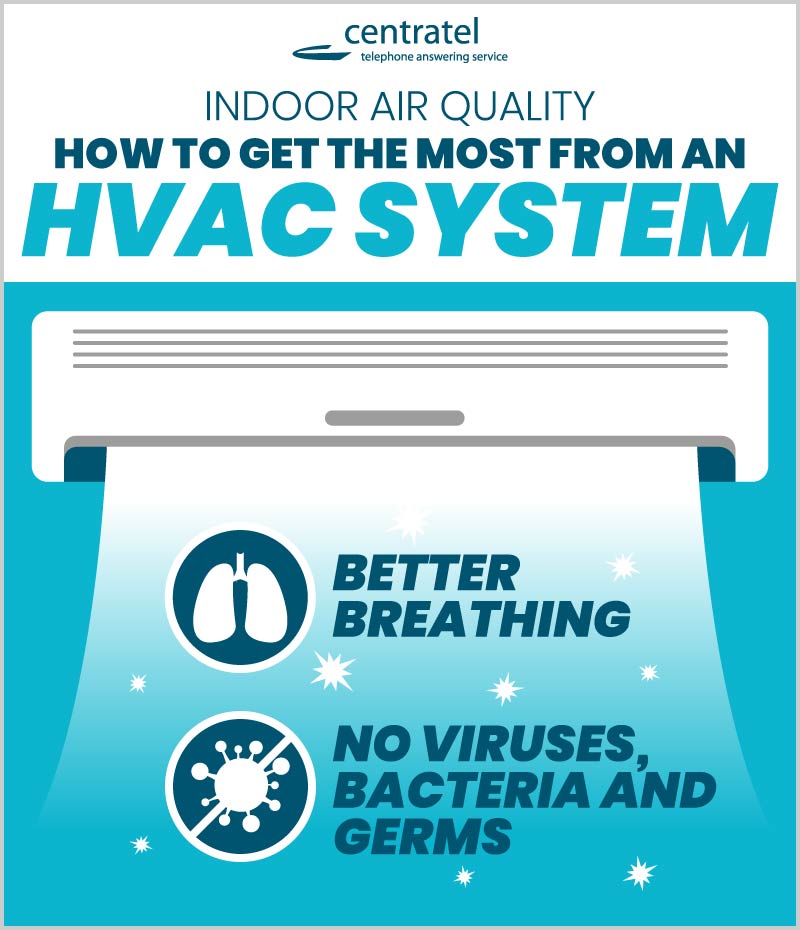
This image is property of www.centratel.com.
Maintenance Importance
Regular HVAC maintenance plays a significant role in improving and maintaining indoor air quality. Let’s explore the significance of regular maintenance, its impact on air quality, and the importance of cleaning and servicing HVAC components:
The Significance of Regular HVAC Maintenance
Regular maintenance of HVAC systems is crucial for their optimal performance and longevity. It helps prevent breakdowns, ensures energy efficiency, and improves indoor air quality. Through routine inspections and servicing, potential issues can be identified and addressed before they escalate, leading to better air quality and overall system performance.
Preventing Issues that Impact Air Quality
HVAC systems that are not properly maintained can become breeding grounds for pollutants, allergens, and mold. Dust, debris, and microbial growth can accumulate within the system, compromising indoor air quality. Regular maintenance, including cleaning and servicing, can prevent these issues and maintain a cleaner and healthier environment.
Cleaning and Servicing HVAC Components
Regular cleaning and servicing of HVAC components are essential for maintaining good indoor air quality. This involves cleaning or replacing air filters, checking and cleaning the coils, inspecting and cleaning ductwork, and ensuring proper functioning of fans and motors. By keeping these components clean and well-maintained, the HVAC system functions more efficiently, improving air quality in the process.
Scheduling Professional Maintenance
While some HVAC maintenance tasks can be performed by homeowners, scheduling professional maintenance at least once a year is highly recommended. Professional HVAC service providers have the expertise, experience, and specialized tools to conduct a thorough inspection and servicing of the system. They can identify any hidden issues, clean hard-to-reach components, and ensure that your HVAC system is operating at its best, contributing to improved indoor air quality.
Choosing a Reputable HVAC Service Provider
Selecting a reputable HVAC service provider is essential for ensuring that your indoor air quality concerns are addressed effectively. Here are some factors to consider when choosing a service provider:
Researching and Reading Customer Reviews
Conducting research and reading customer reviews can provide valuable insights into the reputation and service quality of HVAC service providers. It is important to look for service providers with positive reviews and high ratings, as this indicates their reliability and customer satisfaction.
Expertise and Experience in Indoor Air Quality
Choosing an HVAC service provider with expertise and experience specifically in improving indoor air quality is crucial. They should have a deep understanding of air filtration systems, ventilation, humidity control, and other aspects related to indoor air quality improvement. This ensures that they can effectively address your unique needs and provide appropriate solutions.
Certifications and Licenses
Check if the HVAC service provider holds the necessary certifications and licenses required by local or national regulatory authorities. Certifications like NATE (North American Technician Excellence) indicate that technicians are well-trained and knowledgeable in their field. A licensed service provider gives you the assurance that they comply with industry standards and regulations.
Professional and Reliable Customer Service
The level of customer service offered by an HVAC service provider can greatly impact your overall experience. Look for providers that are responsive, prompt, and professional in their interactions. A reliable service provider should offer convenient appointment scheduling, clear communication channels, and be ready to address any concerns or queries you may have.
Improving indoor air quality is essential for maintaining good health and creating a comfortable living or working environment. By understanding the importance of indoor air quality, identifying common pollutants, implementing air filtration systems, proper ventilation, humidity control measures, duct cleaning and sealing, UV air purifiers, carbon monoxide detection, regular maintenance, and choosing a reputable HVAC service provider, you can ensure that the air you breathe is clean, pure, and safe. Taking these steps will not only improve your overall well-being but also contribute to a healthier and happier lifestyle.
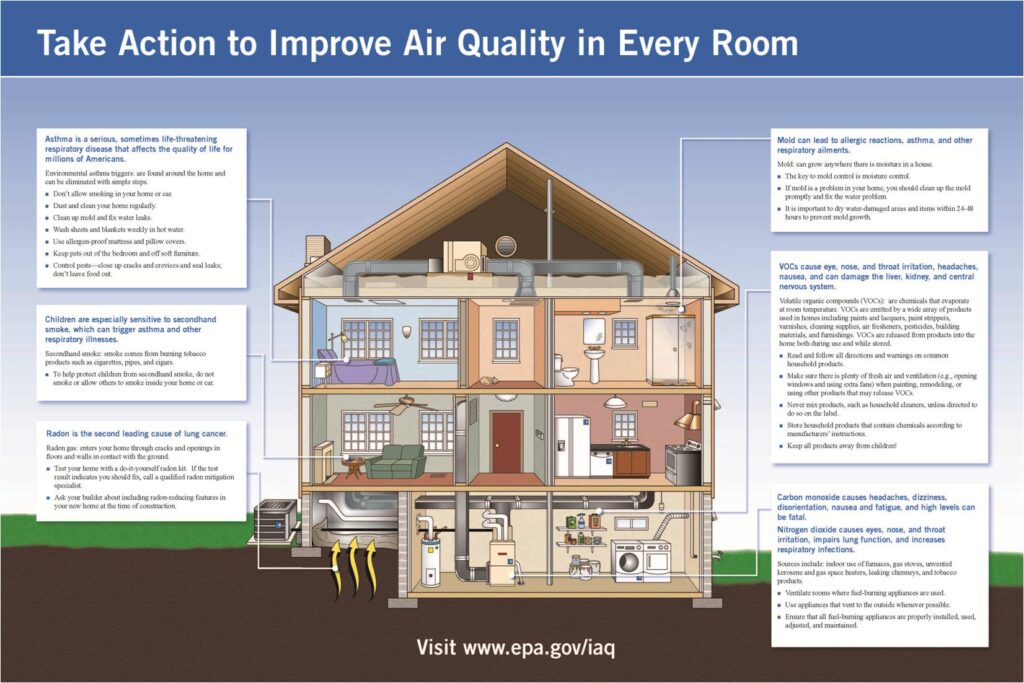
This image is property of alaskanquality.com.


